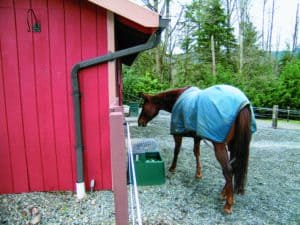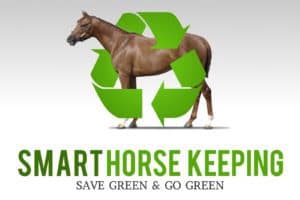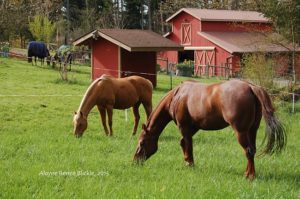Farm Equipment: Buy or Lease?
- Topics: Smart Horse Keeping
 Shopping for a new vehicle last year I had to decide whether it would be more practical to buy or lease based on my budget. The same case can be made for farm equipment Ð from tractors to all-purpose vehicles to trucks and trailers. You can find significant savings in either buying or leasing depending on your needs and objectives. First determine those needs, factor in maintenance cost, and then compare the affordability of lease payments versus purchase price.
Shopping for a new vehicle last year I had to decide whether it would be more practical to buy or lease based on my budget. The same case can be made for farm equipment Ð from tractors to all-purpose vehicles to trucks and trailers. You can find significant savings in either buying or leasing depending on your needs and objectives. First determine those needs, factor in maintenance cost, and then compare the affordability of lease payments versus purchase price.
Benefits of Leasing: Less money is required up front than if you were to purchase the equipment; lease payments are often less than loan payments on a purchase; leasing is always a good option if you know you will only be needing the equipment for a certain period of time.
From "Creative Purchasing": Paula Hitzler, BS (Animal Science), manager of the Horse Teaching & Research Center at Michigan State University, oversees the daily care of up to 120 horses. For MSU’s 100-acre horse facility where lots of mowing is done, Hitzler says leasing the equipment is the best choice. "We lease a new four-wheel-drive utility vehicle and a mower every year," Hitzler says. "On a use/hour/cost basis we save money; it’s cheaper getting new equipment every year versus the cost of buying outright and putting repair costs into older equipment."
Benefits of Buying: It’s far easier and less expensive to change out equipment you own than to get out of a lease; there is value in reselling a piece of equipment; a good choice if the equipment will begin to pay for itself through haying, etc.
From Creative Purchasing: Margaret Evans, breeder/owner of Kikkuli Farm, a Thoroughbred racehorse/performance horse breeding facility in Lindell Beach, British Columbia, feels owning your own equipment is hands-down the best option for them.
"We have nine horses on a 45-acre area that comprises two meadows, one of which is fenced off in early spring for hay production," she says. "Since we are able to hay part of our pasture, we invested in a tractor and haying equipment; for the past six years we’ve put up our own hay for the winter. This is a huge economic benefit, not only in the saving on the cost of hay, but in the time and cost of gas to truck hay from the local supplier or pay for deliveries."
To delve into the tax benefits of leasing or buying, check out the article by Dick Lewis, extension agricultural economist, dept. of agriculture and resource economics at the University of Maryland, called “The Economics of Buying vs. Leasing Farm Equipment“
Create a free account with TheHorse.com to view this content.
TheHorse.com is home to thousands of free articles about horse health care. In order to access some of our exclusive free content, you must be signed into TheHorse.com.
Start your free account today!
Already have an account?
and continue reading.

Written by:
Alexandra Beckstett
Related Articles
Stay on top of the most recent Horse Health news with














